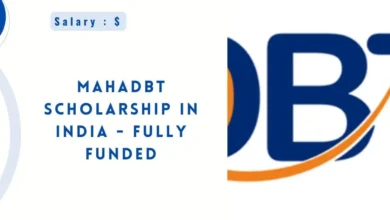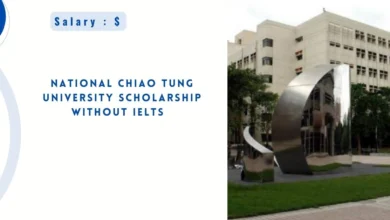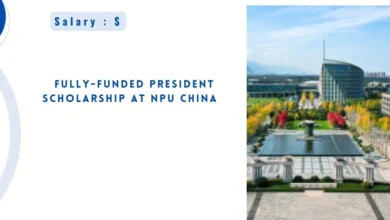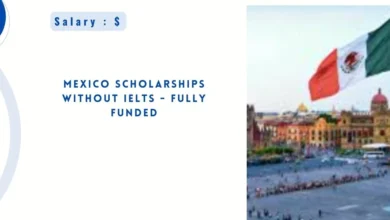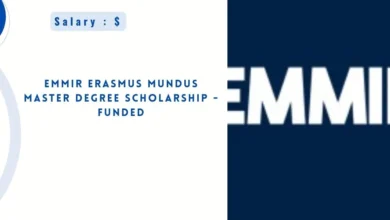British Council Scotland EARTH Scholarships 2025 – Apply Now
For the British Council Scotland EARTH Scholarships, people can still send in their applications. This project, which is run by SGSAH and funded by the British Council, wants to make it easier for Ph.D. and Early Career Researchers, Scottish Higher Education institutions, academic mentors in Scotland, and outside groups to work together on research projects across borders.
The main goal of the program is to stress how important environmental arts and humanities are, along with arts and culture in general, in dealing with the urgent climate disaster. It focuses on how they can be used for research across different fields within the STEAM framework (Science, Technology, Engineering, Arts, and Math).
Through this initiative, chances for study and global travel will be increased. This will lead to the development of new ways to deal with the problems caused by the climate emergency that affects people all over the world.
The program also wants to promote long-term study and make it easier for people from different cultures to share their ideas and experiences, both within and outside of the arts, humanities, and culture.
Details:
| Funded by | British Council Scotland/SGSAH |
| Country | UK |
| Degree | Ph.D and Early Career Researchers |
Check Also: British Council GREAT Scholarship- Study in UK
Eligibility for Earth Scholarship:
- It will be possible for PhD students and early career researchers (ECRs) from any non-UK university who are working in the humanities and the environment to come to Scotland and work with a coach while using the networks and resources of a host HEI.
- All candidates must either be in the process of getting a PhD or have already earned one. This is usually in the arts and humanities. This is what the AHRC says about these topics. The subjects of research projects must also be in the arts and humanities. At least half of the project for any combined Ph.D. must be in the arts and humanities. The program strongly encourages study project proposals that use approaches from fields other than the arts and humanities.
- For the Program to work, ECRs must be within one year of receiving notice that they have been awarded their PhD. In rare cases, this deadline can be pushed back to two years.
Scottish Graduate School for Arts & Humanities Higher Education Institutions:
- Abertay University
- Edinburgh Napier University
- The Glasgow School of Art
- Glasgow Caledonian University
- Heriot-Watt University
- Queen Margaret University
- Robert Gordon University
- Royal Conservatoire of Scotland
- University of Aberdeen
- University of Dundee
- University of Edinburgh
- University of Glasgow
- University of St Andrews
- University of Stirling
- University of Strathclyde
- University of the Highlands & Islands
- University of the West of Scotland
Required Documents:
Full Research Proposal:
- A long paper that explains your research questions, how you plan to answer them, what results you expect, and why your work is important.
Benefits Statement:
- Describe how being a part of a cluster, building a cohort, and participating in different training and development events will help you.
Budget and Justification:
- A detailed budget that lists all the resources you’ll need for your study and explains why each item or cost is necessary.
Curriculum Vitae (CV):
- A CV of up to 4 pages that lists your academic background, research experience, publications, and any other accomplishments that are important.
Letter of Support from PhD Supervisor:
- A letter (up to two pages long) from your PhD supervisor supporting your research plan and saying that you are a good fit for the program.
Letter of Support from Proposed Host Institution:
- A letter from the institution where you will be doing your study confirming that they will help you and that you are affiliated with them.
How to Apply for British Council Scotland EARTH Scholarships 2025?
Conclusion:
The British Council Scotland EARTH Scholarships are a one-of-a-kind chance for Ph.D. students and Early Career Researchers to work with Scottish institutions and advance their study in the arts and humanities related to the environment. The program wants to help solve global climate problems and improve professional growth by supporting cross-border study in the STEAM framework.
To take advantage of this once-in-a-lifetime chance, those who are qualified should put together a full application that includes a detailed study proposal and letters of support. Visit the websites of the British Council or SGSAH for more information on how to apply.
Frequently Asked Questions:
Who is eligible to apply?
Ph.D. students and early career researchers from universities outside the UK who work in the environment and humanities are qualified. Those who want to apply must either be working on their Ph.D. or have finished one within the last two years. Their study projects must be in the humanities and arts.
What is the British Council Scotland EARTH Scholarships program?
The British Council funds the EARTH Scholarships program, which is run by SGSAH and helps Ph.D. students and Early Career Researchers in the arts and humanities study the environment. To fight climate change, it encourages study and teamwork across borders in the areas of STEAM (Science, Technology, Engineering, Arts, and Math).
